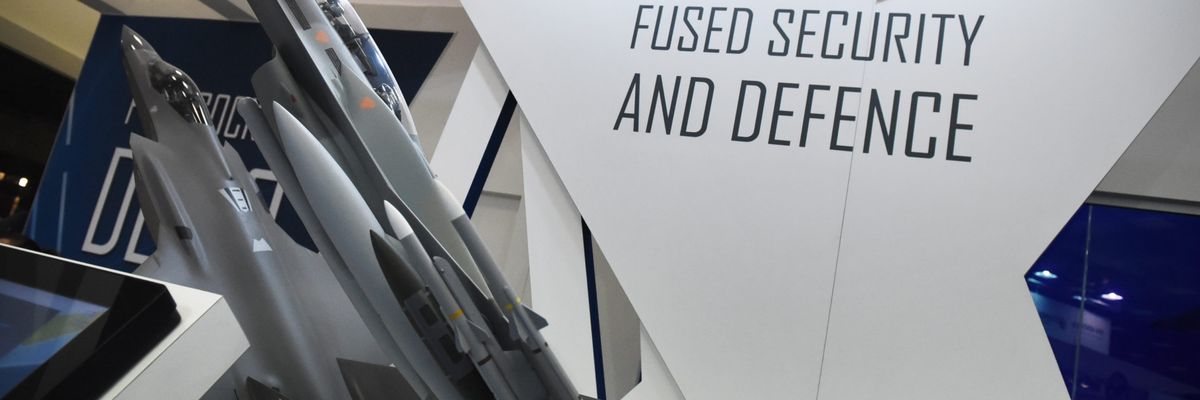In a tense House Subcommittee on Readiness hearing on Thursday, several lawmakers questioned Department of Defense officials overseeing the F-35 fighter program, which had been the subject of a Government Accountability Office report released Monday detailing major, unresolved defects with the plane.
In his opening statement, Chair of the Subcommittee Rep. John Garamendi (D-Calif.) laid out the issues of sustainment — a term referring to logistical challenges including operating and support costs, aircraft availability, supply chain management, and mission capability — facing the most expensive weapons system in Pentagon history:
“Over the past few years, it has become abundantly clear that sustainment is the most acute long-term challenge facing the F-35 program. Sustainment will amount to more than 80 percent of the program’s total lifecycle costs, at a mind-boggling $1.3 trillion. Largely because of supply issues and poor reliability and maintainability, average F-35 mission capability rates are barely over 55 percent, with a paltry 30 percent of the aircraft capable of performing all of their assigned missions.”
Lieutenant General Eric Fick, who oversees the program, was coy with his answers, often claiming there have been funding issues, or deflecting the blame to contractors and maintaining that the F-35 program has “made significant progress.”
Of particular focus was the Autonomic Logistics Information (ALIS) — the plane's information infrastructure which, according to the GAO report, has faced “long-standing challenges, including technical complexity, poor usability, and inaccurate or missing data.” In one heated exchange, Rep. Garamendi asked General Fick to give an update on the ALIS program:
General Fick: “I have a new material leader working ALIS…he’s got a very very solid plan in place."
Rep. Garamendi: “And if it fails, will he just get another promotion?”
The lack of accountability for defense contractors, including both Lockheed Martin and engine contractor Pratt & Whitney, was also front and center. The GAO report detailed how Pratt & Whitney only delivered six out of 152 engines on time in 2021, many of them with quality issues. A frustrated Garamendi asked: “For the contractors out there, what in the hell are you doing? Why can’t you give us a piece of equipment that actually works?”
Of course, lawmakers shoulder plenty of blame for the disastrous program. Instead of attempting to address systemic problems, Congress continues to fund the F-35 at levels beyond what the Pentagon has even requested; for instance, in the FY 2020 Defense Appropriations Act, there was $2 billion allocated in earmarks to fund an additional 22 F-35s beyond what the Pentagon itself requested. And, it appears many of them still haven’t learned.
Rep. Michael Waltz (R-Fla.), who received a $6,000 campaign contribution in the 2020 cycle from the prime contractor Lockheed Martin, asked General Fick: “If there was one thing this committee could do in this next NDAA to get those FMC (fully mission capable) rates where they need to be, what would that be?”
Not all members of Congress shared that line of thinking. Rep. Jackie Speier (D-Calif.) criticized Congress’ full-steam-ahead approach to the program by saying:
“We are incapable of turning off the spigot when something doesn’t work…and we’re asking the American people to pay for F-35s, only 55 percent of which are considered mission capable when the standard is supposed to be 75 percent.”
Speier also pointed out that perhaps part of the lack of accountability comes from the nature of the contracts doled out. “We created a sustainment contract, much like we did with ALIS, where we’re not in charge and Lockheed Martin has the maintenance contract, so it’s a cash cow for them for the future,” she said.
Despite all of the F-35 program’s design errors — 845 of them according to a recent testing report — the Pentagon is still on track to acquire one-third of the total number of F-35s before the aircraft even finishes operational testing. This will only place a further burden on everyday Americans since problems addressed later on will be even more costly, and likely pose national security risks, since many of the design flaws are related to cyber vulnerabilities.
“The F-35,” Garamendi points out, is a “shared problem. It's a problem of the contractor, Lockheed Martin, and others, it’s a problem of the Department of Defense not paying attention to sustainment, and it is a problem of this committee, and the Senate wanting to buy new bright shiny things and not paying much attention to the sustainment of what was purchased.”
















